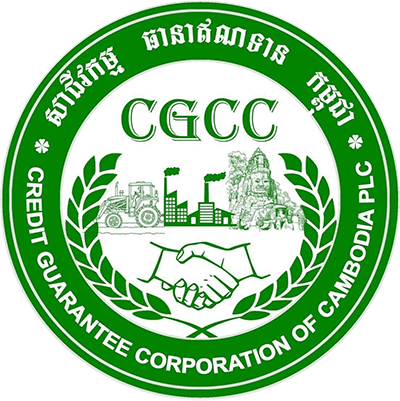Credit to: Khmer Times
With support from the Credit Guarantee Corporation of Cambodia, business owners affected by the pandemic can now take loans from Wing Bank to resume their operation.
Wing Bank (Cambodia) Plc and the Credit Guarantee Corporation of Cambodia (CGCC) officially kicked off the credit guarantee agreement to collaborate on disbursing loans to business operators in Cambodia who may face difficulty obtaining loans due to lack of sufficient collaterals.
This partnership will involve Wing Bank taking part in the Credit Guarantee Schemes with CGCC to support those businesses adversely affected by the Covid-19 pandemic including micro, small and medium enterprises to large firms to ease their access to formal loans for working capital and investment or business expansion.
“I am very delighted that we can now increase our financial support to more business owners with the collaboration with CGCC, “said Mr. Han Peng Kwang, Wing Bank’s Chief Executive Officer. “We have developed extensive financial products and services to help business owners in Cambodia. The partnership today will be another catalyst to further our reach to them.”
CGCC will support Wing Bank in guaranteeing the loans to borrowers whose businesses are deemed viable but lack collateral by providing credit guarantees as additional security, thereby reducing the required collaterals.
After its official launch as a commercial bank in April 2021, Wing Bank has put in place many financial products and services to meet the needs of individual customers and business owners. All can be accessed through Wing Bank, Wing Money App, and more than 10,000 Wing Cash Xpress agents across Cambodia.
Under this partnership agreement, Wing Bank becomes one of the 20 Participating Financial Institutions (PFIs) of CGCC in providing guaranteed loans to businesses, including SMEs, that lack collateral for their working capital and business expansion.
Mr. Wong Keet Loong, Chief Executive Officer of CGCC mentioned that “Our partnership with Wing Bank is strategic for CGCC to tap on the wide coverage of Wing Bank’s innovative array of financial products via its digital network. This will propel CGCC into the digital space by offering our guarantee for loans to businesses in the Wing’s digital eco-systems.”
Established in 2020, CGCC is aimed at improving financial inclusion and developing the growth of SMEs through providing credit guarantees to lenders on loans made to businesses based on international standards.
Cambodian Business owners with more than 50% ownership can now approach Wing Bank for the CGCC’s guarantee scheme or contact it directly via its website www.cgcc.com.kh for more information.
You might als0 interested in Maybank Cambodia and CGCC team up to help local SMEs

